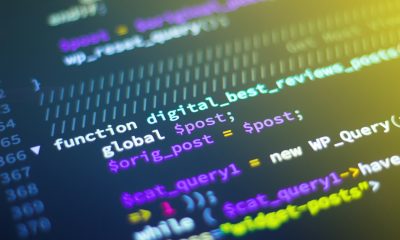virus coronavirus
#EAPM ra toàn cầu - tham gia với chúng tôi vào ngày 14 tháng XNUMX

 Greetings all, and welcome to the latest update from EAPM, viết Liên minh châu Âu cho Cá nhân Y học (EAPM) Giám đốc điều hành Denis Horgan.
Greetings all, and welcome to the latest update from EAPM, viết Liên minh châu Âu cho Cá nhân Y học (EAPM) Giám đốc điều hành Denis Horgan.
First of all, a quick recap of our highly successful virtual conference that took place earlier this week (30 June).
There were more than 220 delegates participating in the conference from across the EU, with additions from the US, Latin Americas as well as Asia. Delegates themselves chose how to deal with different time-zones, and managed to join us when they could,
A dozen MEPs were among our number (with several speaking), seven European Commission officials, plus representatives from the EMA and World Health Organization. The latter highlighted the need for international alignment.
On top of this, we had a great representation from our broad range of stakeholders from across the medical spectrum.
EAPM will publish a report next week, so do look out for that…
Next up for us is a further ‘call for action’ in the shape of our upcoming global conference (14 July), which seeks alignment to embed the potential of personalised health care into health-care systems.
Dưới đây là thông tin chi tiết hơn:
Global Conference 14 July
On Tuesday 14 July, our Global Conference will take place. It’s entitled 'Forward Together - Where we are now and the necessary next steps for a resilient health-care system - effective ways of investing in health care in a COVID-19 and Post COVID-19 world'.
Here are the links to đăng ký và chương trình nghị sự.
Obviously, like everyone in our sector, EAPM is and has been as busy as ever during this dreadful crisis that we all find ourselves in, and the work to embed personalised medicine and generally improve the health of all citizens goes on unabated.
We'd like you to join us at this high-level ‘virtual' global conference, featuring two important seminars - one on Asia, the Middle East and the European Union, and the second focusing on the European Union, Latin America and North America.
The EAPM Global Conference will run from 8h-19h on that day, split between two time-zones (8h-12h30, then 16h-19h), with discussions centred around the concept of personalised healthcare in the sense that it refers to innovative medical interventions tailored to the specific needs of individual patients, thus providing better treatment and preventing undesirable adverse reactions while fostering a more efficient and cost-effective health-care system.
By taking stock of where we are globally in different regions in terms of access to personalised health care in these COVID-19 times, acknowledging challenges need to be overcome.
Meanwhile, by highlighting opportunities to accelerate progress in a post COVID-19 setting, the scene for further action can be set. In this regard incentives on national, regional level and global-level as well as co-operation between countries are vital to make early access to personalised health care a reality for patients throughout every region globally.
There will be many Q&A sections, so everyone will have the opportunity to contribute.
Mục tiêu
The over-riding goal in all areas today is to identify and fill the implementation gap that exists when aiming to introduce innovation into Global healthcare systems at a faster and quicker pace.
This involves developing policy frameworks in relevant sectors, building on global frameworks such as EU Council Conclusions on personalised medicine as well as the Precision Medicine Initiative in the US, and developing a workable framework for co-operation going forward, while building bridges between stakeholders, many and varied across different regions globally.
Expected outcomes:
It is necessary to formulate a patient-centred strategy involving EU decision makers and regulators in the arena of public health, to enable the EU and member states to contribute to integrating personalised medicine into clinical practice while enabling much-greater access for patients.
We do hope you can join us for this important online meeting.
England scales back lockdowns from Saturday (4 July)
Thủ tướng Anh Boris Johnson is expected to urge the public to act responsibly ahead of lockdowns being eased across England (although not in Leicester, where there have been alarming outbreaks of late).
As well as lifting restrictions from people flying in from various countries as of 10 July, England’s bars, rests, hair salons and other businesses will be allowed to open as of tomorrow (Saturday 4 July), albeit with strong social distancing and other measures in place.
Scotland, Wales and Northern Ireland are yet to go as far as England.
Germany in the chair
We’ve suggested before that German Health Minister Jens Spahn backs giving the EU more health power, to a degree.
And now that Germany has taken over the rotating presidency, we should hear more about that.
Actually, we already have. Kinh tế học reports that, in a virtual event hosted by the European Council on Foreign Relations, Spahn said there's added value in letting Brussels play a bigger role on health.
He gave examples examples including patient mobility in transmittable diseases and reference networks for patients with cancer or rare diseases.
He insisted, however, that health systems are a Member State competence, not least because they are “linked with the culture of a country, plus tradition plus history”.
"When it comes to coverage, when it comes to financing…that should remain on a national level,” he said, while using similar arguments on HTA and the mandatory aspects of the Commission’s plans.
On HTA Spahn said: “In general, we are so supportive…if you have the same scientific framework, there should not be a different result in Riga, Rome, Amsterdam or Madrid.”
He added, though, that Germany still wants it to be “less binding” than others. He reckons a solution will be found - although probably not during the German Presidency.
Instead, we hear, Spahn’s section will concentrate on addressing health sovereignty; deciding what kinds of essential medical goods should be produced in Europe; and building up the European Centre for Disease Prevention and Control.
Putting the finger on digital
Finally it appears that the idea of digitalizing Europe’s health systems is starting to resonate properly, with Giám đốc ECDC Andrea Ammon saying this week that the time has come.
The ECDC has issues with data harmonization across EU Member States for all diseases, but there have been big delays and data issues during the COVID-19 crisis.
Because people were inputting data and changing their methods, she said: “We had huge delays at the beginning,” and it was difficult to interpret the data on hand.
For example: “Does the country have few cases because they have no transmission? Or because they don't test?”
She added: “We have to change…the way we do surveillance,” although there isn’t time before a COVID-19 second wave as “it will just take more time than we can [have] now during the pandemic”.
More emphasis on obesity
Meanwhile, the European Association for the Study of Obesity (EASO) has urged Brussels to make obesity prevention and treatment a priority in its EU4ealth chương trình.
The organization in a policy position paper said that people with the condition should be identified as a high risk group of vulnerable people.
Di chuyển
The 1 August will see Birgit Berger, the former secretary-general of the Standing Committee of Doctors and CEO of the European Cancer Organization, become CEO of the European Heart Network. We wish Birgit all the best in her new role.
Berger takes over from Susanne Løgstrup, người đang nghỉ hưu.
That’s it for now, just don’t forget to join us for our Global conference on the 14th. Bye for now…here is that registration Link một lần nữa và chương trình nghị sự.
Chia sẻ bài viết này:
-

 Ukraina4 ngày trước
Ukraina4 ngày trướcLiên minh tỷ phú: Ihor Kolomoisky, Bank Alliance & United Energy
-

 Ukraina5 ngày trước
Ukraina5 ngày trướcFerrepo chịu áp lực liên tục ở Ukraine
-

 Nên kinh tê5 ngày trước
Nên kinh tê5 ngày trướcSố liệu người mua sắm xuyên biên giới của Tây Âu sẽ phá kỷ lục vào năm 2025
-

 ngân sách EU4 ngày trước
ngân sách EU4 ngày trước14 tỷ euro chi tiêu không thường xuyên của EU được báo cáo từ năm 2014 đến năm 2022























